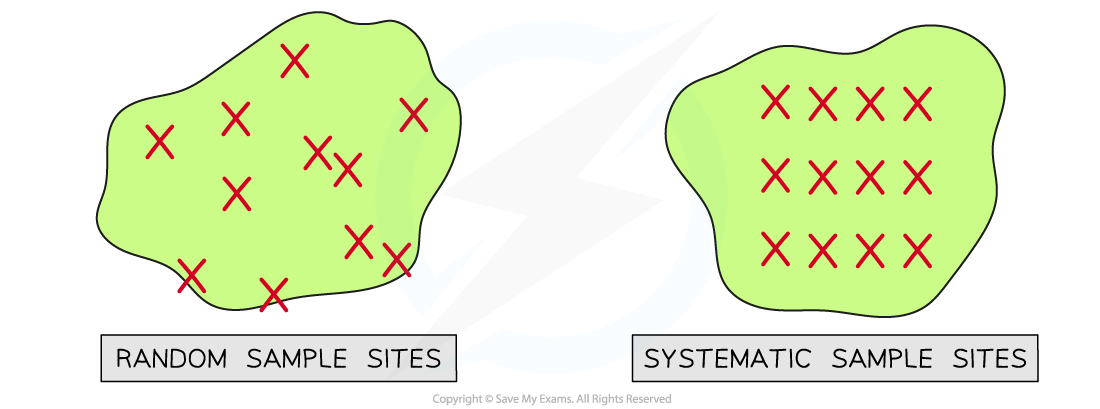Random Sampling (Cambridge (CIE) A Level Biology) : Revision Note
Random Sampling
Measuring the different levels of biodiversity within an ecosystem can be a time-consuming task
Finding out which species live in an ecosystem and the size of the populations requires the identification and cataloging of all organisms present to build a species list
This is possible for areas that are very small or where the species are very large, like trees
However, for larger and more complex ecosystems like rainforests, it is simply impossible to find, identify and count every organism that exists there
When this is the case different samples of the area can be taken and used to make estimates of the total species numbers in the area
Sampling
Sampling is a method of investigating the abundance and distribution of species and populations
There are two different types of sampling:
Random
Systematic
In random sampling the positions of the sampling points are completely random or due to chance
This method is beneficial because it means there will be no bias on the part of the person that is carrying out the sampling that may affect the results
In systematic sampling the positions of the sampling points are chosen by the person carrying out the sampling
There is a possibility that the person choosing could show bias towards or against certain areas
Individuals may deliberately place the quadrats in areas with the fewest species as these will be easier and quicker to count
This is unrepresentative of the whole area
When a sampling area is reasonably uniform or has no clear pattern to the way the species are distributed then random sampling is the best choice
Random v Systematic Sampling Diagram

Random sampling differs from systematic sampling when choosing sample sites on an island

You've read 0 of your 5 free revision notes this week
Unlock more, it's free!
Did this page help you?
